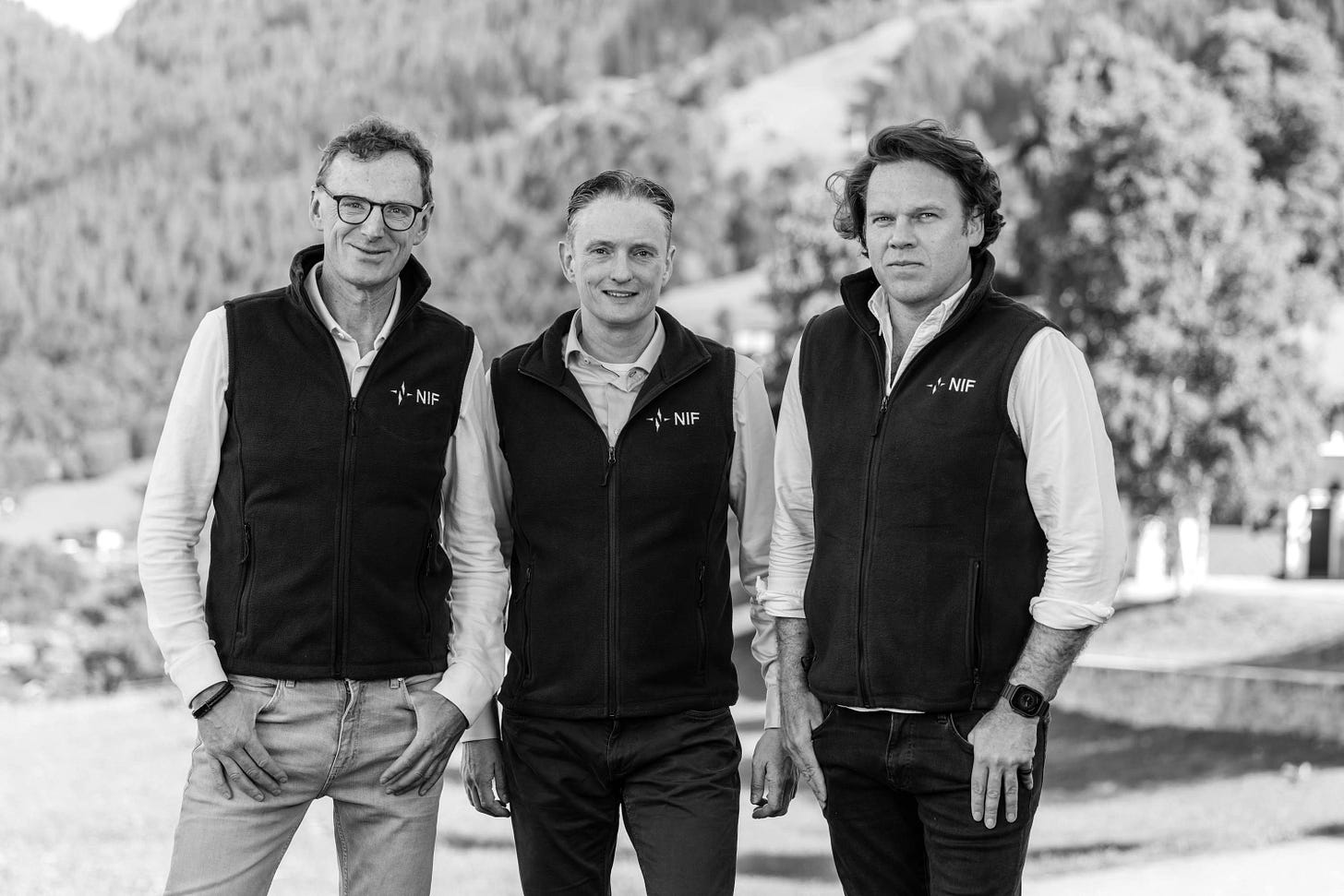NEWS: NATO Innovation Fund Strengthens Its Deep Tech Bench
The NATO Innovation Fund (NIF) has added two major names in European deep tech to its senior investment team: Dr. Ulrich Quay and Sander Verbrugge
The NATO Innovation Fund (NIF) has added two major names in European deep tech to its senior investment team. Dr. Ulrich Quay and Sander Verbrugge will join as Partners, reinforcing the fund’s effort to deliver fast, effective technology adoption across the Alliance. At the same time, Kelly Chen, one of its founding Partners, is leaving NIF to start her own new venture after two years as a partner in the founding team.
The team at NIF has undergone quite a lot of change since it was founded, and has come in for criticism for this.
However, our contacts at NIF are keen to point out that NIF itself is a startup, has scaled fast, and is also evolving amongst rapidly changing geopolitics and a developing new market.
Dr. Klaus Hommels, Chair of NIF, said in a release, ‘We warmly welcome Ulrich and Sander to the Fund’s partnership. Our two new Partners bring exceptional expertise in deep-tech investing, bringing experience and wisdom in adoption and scaling to founders and to other fund managers.’ He added that the aim continues to be to focus on advancing NATO’s technological agenda through the support of founders in Europe.
Dr. Quay, who led BMW’s corporate venture arm and is now Chairman of the Supervisory Board at Hamburg-based mobility startup FREENOW, brings a strong industrial lens. His background spans mobility, AI, and manufacturing which are the domains NATO nations are prioritizing as they look to modernize logistics, supply chains, and defense manufacturing.
‘It’s an incredible time to be joining the NATO Innovation Fund,’ said Dr. Quay in a statement. ‘Technological breakthroughs are often the solution to some of the most pressing issues facing humanity and I’m confident that we are well-positioned to strengthen the foundations of the Alliance’s defence and security, while also helping revitalise the industrial base of Allied nations.’
Verbrugge, coming from Innovation Industries and formerly with NXP and Innovation Industries, adds deep technical fluency in semiconductors and hardware. He has a PhD in Molecular Biophysics, and track record growing startups, both of which will be critical as NATO looks to scale dual-use innovation and as the Alliance faces up to the need for a sovereign semiconductor supply chain.
‘After years of combining my scientific background with my passion for supporting startups, I’m grateful for the opportunity to use my skillset in order to serve the NATO Innovation Fund’s important mission,’ said Verbrugge. ‘I’m looking forward to working with some of the Alliance’s boldest entrepreneurs to unlock the potential of innovative technologies and help meet some of the Alliance’s most pressing needs.’
This move comes as the NATO Innovation Fund sharpens its mandate in the wake of the 2025 NATO Summit. With rising demand for deployable, defensible tech, the Fund is now doubling down on adoption. Quay and Verbrugge will work closely with the Fund’s Mission Platform Group, which connects promising startups to Ministries of Defence and is building on the earlier appointment of John Ridge as Chief Adoption Officer.
It should be expected that the organisation would see changes in its team to reflect this. People will move on to other ventures taking what they’ve learned at NIF and building out a NATO ecosystem as they go.
What is clear from the personnel changes at NIF is a broader recognition that investment alone isn’t enough, and adoption will be key to the success of its mission, and to its portfolio.
The challenge continues to be translating early-stage breakthroughs into operational capabilities, something that anpplies across the defence tech sector. The shape of the team reflects this understanding quite clearly.
The NATO Innovation Fund is a €1 billion venture capital fund, backed by 24 NATO Allies, that invests in deep tech to address challenges in defence, security, and resilience. The fund invests independently, with 24 nations supporting its portfolio’s success and helping provide deep tech entrepreneurs with access to both commercial and government markets.
Participating NATO Allies are: Belgium; Bulgaria; Czechia; Denmark; Estonia; Finland; Germany; Greece; Hungary; Iceland; Italy; Latvia; Lithuania; Luxembourg; Netherlands; Norway; Poland; Portugal; Romania; Slovakia; Spain; Sweden; Türkiye; United Kingdom.



